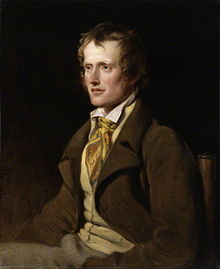After the very bright light,
And the talking bird,
And the singing,
And the sky filled up wi’ wings,
And then the silence,
Our lads sez
We’d better go, then.
Stay, Shep. Good dog, stay.
So I stayed wi’ t’ sheep.
After they’d cum back
It sounded grand, what they’d seen.
Camels and kings, and such,
Wi’ presents – human sort,
Not the kind you eat –
And a baby. Presents wes for him
Our lads took him a lamb.
I had to stay behind wi’ t’ sheep.
Pity they didn’t tek me along too.
I’m good wi’ lambs,
And the baby might have liked a dog
After all that myrrh and such.
This poem goes straight to the heart- that’s why I love it so much. At first you approach it with a certain world weariness. Oh no ! You think. My life seen through the eyes of a dog. How unoriginal.
And the language is so simple- almost child-like. “ the singing/ And the sky filled up wi’ wings.” But then you slowly catch on to what’s happening here- it’s The Nativity, and the shepherds are going to visit the Christ child. But this isn’t happening in the Holy Land- this is happening in Yorkshire, the place I love- and the shepherds won’t be wearing Middle Eastern robes- they’ll be wearing corduroy trousers and thick coats and they’ll talk broad Yorkshire.
“ Our lads sez”
They leave the dog behind to look after the sheep because he’s a good dog. He can be trusted. And there’s a hint of sadness in the line “ So I stayed wi’t sheep” – the cattle can be present in the stable, but the dog has responsibilities.
“ And after the’d cum back/ it sounded grand, what they’ve seen” “ grand” is pure Yorkshire.
And then the presents`” Our lads took him a lamb”- notice the loyalty the dog shows ‘- “our lads.”
But the dog has responsibilities. He has to miss the greatest event the world has known because he has sheep to look after- and that’s what sheepdogs must do.
The last few lines break me up. Look at them:
“Pity they didn’t tek me along too.
I’m good wi lambs”
First of all there’s the regret. “ Pity they didn’t tek me along too.” The dog understands something of what is happened- but can’t take it all in. He knows only there has been a special birth, and that children love dogs, and he wishes with all his heart, that he could have been there.
That’s what good poetry is. It touches your heart.
You can hear it here:
You can here another UA Fanthorpe poem here:
Or another poem of mine here Tides

